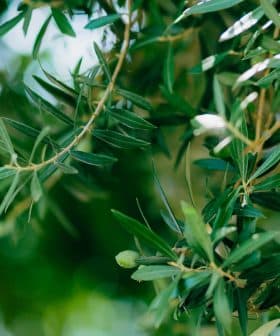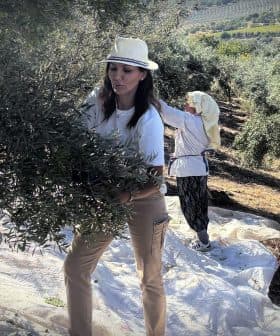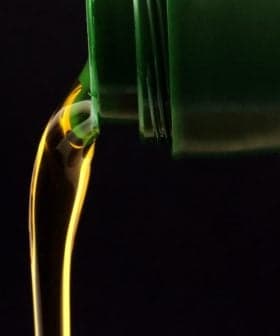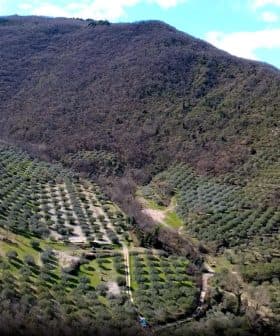Resilience and Innovation Breed Success for Italian Producers
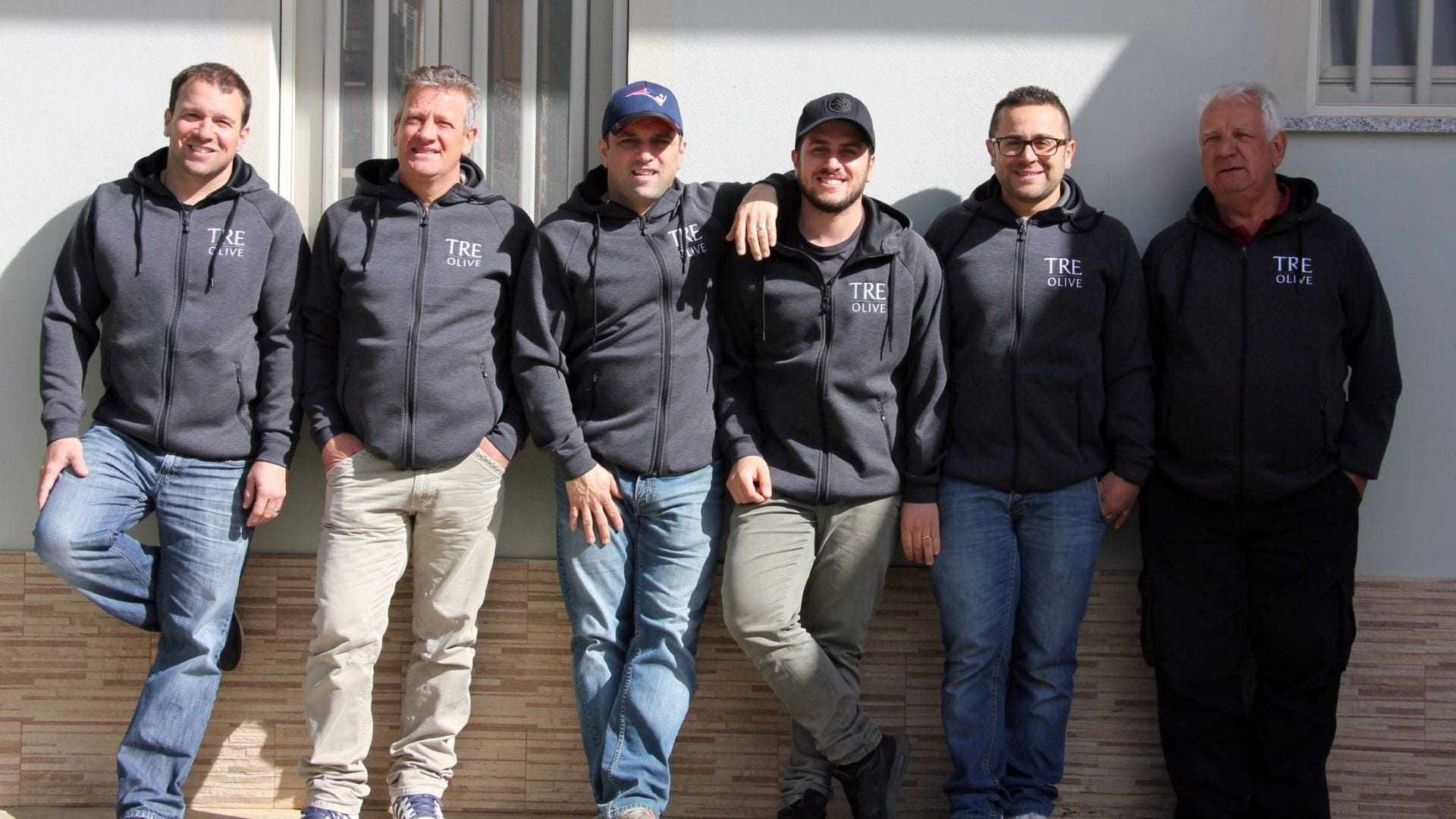
Italian olive oil producers at the 2020 NYIOOC World Olive Oil Competition learned that innovation and resilience are key to success, with Italian producers winning a total of 103 Gold Awards and 36 Silver Awards. Azienda Agricola 500, a Tuscan producer, won two Gold Awards by combining agronomic knowledge with technological advancements, showcasing the benefits of using technology and hard work in olive oil production.
Of the many lessons being learned at the 2020 NYIOOC World Olive Oil Competition, one has made itself clear to Italian producers: innovation and resilience pay off.
Italian producers of all sizes came away from the world’s most prestigious olive oil quality contest with a combined 103 Gold Awards and 36 Silver Awards. Harnessing the power of technology, along with putting in some hard work, turned out to be a winning combination for producers of all sizes.
We tagged every single tree with a barcode and with the software I developed, we could monitor the behavior of every single tree over time. That thorough job… allowed us to produce our best oil qualities in just a few years.
That was the case for Azienda Agricola 500, a producer in Tuscany that won two Gold Awards for the third time in a row at the NYIOOC. The small business combines the agronomic knowledge of one of its co-founders with the technological know-how of the other.
“We are delighted and honored by these Gold Awards. We began our adventure in olive oil just five years ago and with these awards we have a strong confirmation that our farm took the right path forward,” Roberto Arnetoli, co-owner of the company, told Olive Oil Times.
See Also:The Best Olive Oils from ItalyThe company harvests from about 15 acres of olive trees on the hills of Tuscany, not far from Florence. The name, 500, comes from the average elevation of the region.
“We have trees at 400 meters (1,300 feet) above sea level up to about 600 (2,000 feet), which means their production can be dramatically different,” Arnetoli said. “The hilly nature of our territory also makes our olives receive different levels of wind, sun and so forth.”
“We are now producing four different extra virgin olive oils, but with the last two, named 500 L and 500 X, there is still some work to do,” he added.
The two olive oils that secured Gold Awards this year are blends. The first one, 500 M, is mostly made from the Moraiolo cultivar, while 500 C is a blend of several different cultivars.
“When we first arrived at this farm, which is close to where I was born, we found ancient trees that had been struck by the icy winter of 1986 and abandoned for many years,” Arnetroli said. “So we decided to take an inventory, while restoring the trees’ productivity and health.”
“We tagged every single tree with a barcode and with the software I developed, we could monitor the behavior of every single tree over time,” he added. “That thorough job, along with the excellent quality of the local oil mill that operates in a nitrogen controlled environment, allowed us to produce our best oil qualities in just a few years.”
The land defines the challenges, scents and opportunities, according to Marco Viola, owner of Azienda Agraria Viola. The Umbria-based producer won a Gold Award for his Viola Colleruita DOP.
“Our olives come from trees that you would not find in Puglia or in Spain, smaller trees, perched on stony hills,” he told Olive Oil Times. “There are many ancient trees that give shape to our territory and to the special work we undertake to choose and manage the fruits.”
The farm works closely with several local growers, all of whom share what they have – from agronomic techniques and organic fertilizers to knowledge about timing the harvest and olive oil extraction technologies – to collectively produce higher-quality oils.
“Together, we choose the best olives of the season and set a common strategy for the harvesting based on an ideal timing of the veraison (ripening process),” Viola said.
The fruits are transformed in the farm’s oil mill, a plant built with the latest generation of milling technology.
“We bonded over time as a territory,” Viola said. “As a whole, we ended up managing almost 200,000 acres, with the same vision, the same idea of producing a very high-quality olive oil. We are one with our land, we produce olive oils with very specific characteristics, oils that are bitter and spicy.”
Among the best olive oils selected by the 2020 NYIOOC panel of judges were three monovarietals produced by Monini, one of the largest Italian olive oil producers.
“A few years ago, we decided to make a few select high-quality monovarietal olive oils, based on the cultivars and the territories we are traditionally active in,” Marco Petrini, head of Monini North America, told Olive Oil Times.
Monini earned its Gold Award with Monocultivar Frantoio, an oil produced in Umbria, where the company has thrived for a century.
“At the core of our work here, there are the three specific configurations that can be used in our oil mill in Spoleto to process different olives,” Petrini said.
Every cultivar has its own configuration and the goal is to get the most out of the different olives.
“Frantoio trees, for instance, usually produce small olives, lighter than two grams (0.07 ounces),” he said. “Thanks to a series of cultivar-specifics, like using a hammer-like pressing method instead of the traditional blades, we get a higher yield from Frantoio olives while keeping its high-quality features intact.”
Heat exchangers and horizontal kneaders are also applied to the cultivar.
“All of that results in a high-quality product with an intense emerald color and all the scents and taste you can expect from Frantoio,” Petrini said.
The other two Silver Awards won by the company came from monovarietals produced in Sicily and Puglia, from the Nocellara and Coratina cultivars. In these two parts of southern Italy, the production and managing protocols of Monini are adopted to suit the cultivars, such as late-night or early-dawn harvesting and temperature-controlled transport.
“We are proud to have been taken into consideration by the judges at the 2020 NYIOOC, where we competed with historic local producers and the oil mills of Umbria, local companies whose products are of an absolutely high quality,” Petrini said.
Veneto, in northeastern Italy, is one of the regions of the country that has been most impacted by the climatic challenges of the previous season, but even these did not hinder the results of some of its olive oil producers.
“We are proud to have earned a Silver Award with our organic extra virgin olive oil, Redoro, a product that stems from dedication, passion and technology,” Daniele Salvagno, Redoro’s president, told Olive Oil Times.
“The organic product is one of the most in-demand in the market, but for us it is also symbolic of a sustainable approach to olive oil making,” Salvagno said.
“Apart from the oil in itself, and thanks to the oil mill technologies we have invested in, every step of our work is sustainable,” he added. “From the biological fight against the olive fruit fly and the use of the olive pits for heating, to the solar energy fueling all of our oil milling activities and the re-use of the polyphenol-rich water.”
Redoro has heavily invested in its oil mills, which are continuously updated to the needs of the harvesting season.
“There are no secrets in the quality of our product,” Salvagno said. “Apart from the olive selection, we use machinery to remove leaves and petioles, instruments to keep the working temperature as low as possible during the extraction and the following procedures.”
“We also make the mill work slowly, storing the olives in a nitrogen controlled environment,” he added. “The oil gets directly bottled in that environment in special, high-quality bottles that come from our partners in Milan, a recycled-glass jar that shields the olive oil from ultraviolet light.”
Thanks to this procedure, Salvagno said that Redoro can keep the scents, aromas and taste sensations of its oils intact for longer than many of its competitors.
Italian producer Tre Olive won two awards at the 2020 NYIOOC World Olive Oil Competition.
“For us, the awards validate the improvements that we committed to over the last several years: Investments in grove equipment, upgrades at our mill, and changing processes that have been in place for decades in order to improve quality,” owner Joe Maruca said.
The Calabrian producer earned a Gold Award for its Campo Dieci, and a Silver Award for its Tre Olive, both medium-intensity Carolea monovarietals.



